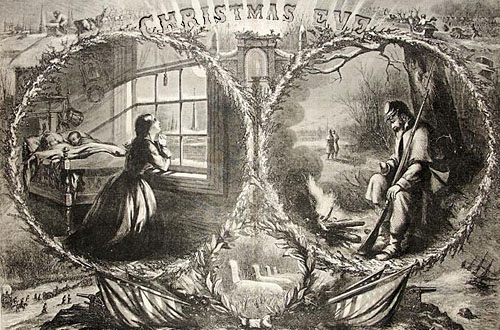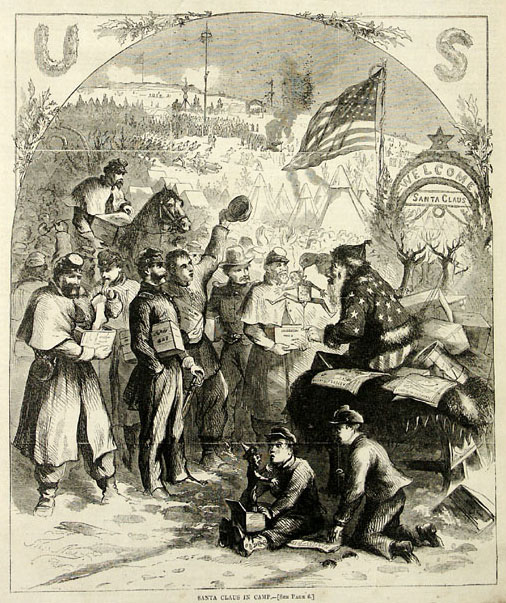I Heard the Bells on Christmas Day
The carol, "I Heard the Bells on Christmas Day" comes directly from the Henry Wadsworth Longfellow poem called "Christmas Bells". Longfellow wrote the poem on Christmas Day in 1863. It was during the American Civil War, which is why he wrote the despairing verse: And in despair I bowed my head; "There is no peace on earth," I said: "For hate is strong, And mocks the song of peace on earth, good-will to men!"
Yet Longfellow ended his poem on an optimistic note: "The Wrong shall fail, the Right prevail, with peace on earth, good-will to men!" He was an abolitionist after all.
Longfellow's seven verse poem was shortened to the five verse carol that's sung today. It was put to a tune by John Baptiste Calkin in 1872.
Below you'll find the full poem. The 4th and 5th verses of the poem were omitted when it was made into a carol so I italicized those verses.

I Heard the Bells on Christmas Day
Christmas Carol
I heard the bells on Christmas Day
Their old, familiar carols play,
And wild and sweet
The words repeat
Of peace on earth, good-will to men!
I* thought how, as the day had come,
The belfries of all Christendom
Had rolled along
The unbroken song
Of peace on earth, good-will to men!
Till, ringing, singing on its way,
The world revolved from night to day,
A voice, a chime,
A chant sublime
Of peace on earth, good-will to men!
Then from each black, accursed mouth
The cannon thundered in the South,
And with the sound
The carols drowned
Of peace on earth, good-will to men!
It was as if an earthquake rent
The hearth-stones of a continent,
And made forlorn
The households born
Of peace on earth, good-will to men!
And in despair I bowed my head;
"There is no peace on earth," I said:
"For hate is strong,
And mocks the song
Of peace on earth, good-will to men!"
Then pealed the bells more loud and deep:
"God is not dead; nor doth he sleep!
The Wrong shall fail,
The Right prevail,
With peace on earth, good-will to men!"
Notes
*In the poem this word is "And" instead of "I".


In the recording below you can hear the whole poem sung as a carol.
1st MP3: Sung by Amelia Chesley.
In the recording below, you can hear the poem recited, followed by a singing rendition by the same performer.
The singing rendition is in this order: 1st two verses, last two verses, then the 3rd verse.
2nd MP3: Recited and then sung by Kristin Hughes.
Following rendition in this order: 1st two verses, last two verses, then the 3rd verse.
3rd MP3: Sung by Tricia G.
Thanks and Acknowledgements
1st Image: A husband and wife separated by the war (Thomas Nast, 1862).
2nd Image: Santa Claus distributes gifts to Union troops in Thomas Nast's first Santa Claus cartoon, (1863).

























